Virgil had sat in the Nothing with the Shaman for an amount of time he could not identify. He asked, "I saw you dead. How is any of this possible?”
“It would be more polite if you asked me a question I could answer,” said Shaman, running his colorless fingers through the colorless grass on which they sat. “I am what you see, but I am not what you see. Your mind makes sense of it with the symbols it has.”
Virgil stared at him in mute confusion.
The old Shaman that was No One tried again. “All things have a symbol or a name, all things but me. I am no one. I am no thing. I am only that I am."
"Is this a riddle?"
"No,” said No One. “But because the truth is the wrong shape to fit into your head, you try to make it into a riddle. Some men try paradoxes. I like those best of all, they never go anywhere either."
"My wife… I came seeking…"
“Yes,” said No One, “I've tasted your desire on the smoke now for seven days – but here it feels like forever and still just an instant. See, paradox!"
“Where have they gone?” demanded Virgil, his hand on his gun.
"They have gone out of this world, to another. I think this not often done. Someone made a bridge. Someone made a tunnel. Someone made a tunnel through a bridge."
"Who? And how do I find this bridge?"
"Tunnel."
"Fine, tunnel…"
“It’s a bridge, you look up. But if it’s not a bridge, it’s a tunnel!” The old man who was No One laughed. “At least I’m pretty sure it is.
With an effort, Virgil removed his hand from his gun. He tried again, saying, “Who has done this?"
"One from here, one from there. From here the ones dug the tunnel to escape. From there, I think they built a bridge. No One shrugged. “Jave you seen anyone strange? Travelers, I mean?"
Virgil shook his head, no.
"Then perhaps someone has set a trap on the other side."
"How do I get there?"
"You would run into a trap?"
"I would ride into hell."
The Indian shrugged, “It is somewhere, I guess. But it all becomes nothing in the end.”
Virgil turned his head and spit. No One was shocked at this. He stared at the moisture hanging from the pigmentless grass and dripping on the colorless earth.
Virgil asked more questions and the Indian gave more unsatisfactory answers. This went on for an hour or an eternity, and Virgil had no way of knowing which it was. Virgil left, feeling that the Indian in the colorless place hadn't told him anything worth knowing.
Virgil did not remember leaving or even deciding to leave. It seemed that he had simply closed his eyes one moment, and opened them the next, to find himself riding on his horse, blinking against the profusion of colors he saw in the muted, eastern Arizona desert.
As he rode back from the Nothing to Nowhere the old Shaman’s words rang in his head, nothing could pass from one place to another without leaving a connection. But where would this connection be? What form would it take? A bridge, a tunnel? How might Virgil use it to return to his family?
He remembered the old Indian’s lopsided grin as he told him that the world was filled with women and that Virgil should go find another wife and have some more children. The Shaman said he was too old to try himself, but he had never stopped wanting to.
Virgil had cursed him then, saying, “If you can't do anything to help me then what are you good for?"
The old Indian had told him that People weren't supposed to be *for* anything. They’re just supposed to be. And added that people forgetting this fact was the source of most of the problems in the world.
He remembered setting seven fires to get to the Nothing. It only took him one night to return. The next afternoon, he spotted smoke on the horizon.
As he urged more speed out of his horse, he realized the shapes of the hills were familiar. He dropped the pack horse and spurs his tired mount into a weary gallop. But when he crested the hill and looked down at the spot where Grantham had been he saw that it still wasn't there. But he was faced with an even more puzzling sight. From the hill where the Morning Star mine had been, a column of black smoke rose into the sky.
At first, Virgil thought that the hill was somehow on fire, but when he approached he realized, even though the smoke smelled of burning hair and flesh, that it was no flame or even heat. The smoke emerged cool and thick, from the dirt itself. He scratched some of the dirt away until he got to rock. And from a crack in the rock itself, the smoke poured forth.
The next day, Virgil began to dig.
The loose dirt on the face of the hill fell away with ease and he had his first cave-in before he had cleared away the bedrock, a simple, but demoralizing landslide. He dismantled the wagon and used its wood to shore up the entrance.
That night he slept under the stars instead of under the wagon and as he fell asleep he whispered a message to his wife Laura. "I know not which one of these bright specs of light you might be by hiding behind, but if I have to search every one I am coming for you all the same. Tell the children I am coming.” Then weariness overtook him.
The next day he took a bag filled with ore and dirt and rode off to Bisbee. There he filed a mining claim. When the registrar asked him if the claim was in Grantham, he said “No,” explaining no further. The ore was rich and the assayer said the claim was promising. Virgil grunted and went on his way.
He bought a wagon and loaded it with mining equipment. Then he made the trek back to the town that wasn’t there anymore. When he arrived, he took a plank, painted the word “Nowhere” on it, then nailed it to a post.
The next day his work began in earnest. He dug with pickax and shovel. And before him as he worked was the always tantalizing crack. It rose and fell, widened and narrowed, but never opened. He got no more whiffs of smoke but by the guttering light of his miner's candle, he could see a thin layer of soot lining the bottom of the fissure.
At the end of each day, he would fill sacks with what he dug and carry them to the wagon. At the end of the first month, the wagon was full and he took it to the mills in Bisbee. It was assayed and sold and with the money, he bought more supplies and hired men. By the end of spring, a new settlement of tents had sprung up around the Nowhere sign.
Now, instead of digging, he supervised. He ran two shifts of miners and eventually hired a foreman. Another outfit came into town and filed a claim off to the South. Men built houses and saloons and stores and warehouses, but Virgil, the richest man in town still slept in a tent. And he might've stayed in that tent until the sun and wind had shredded the canvas.
But it was not to be. One night two desperados thought Rob him as he slept. The next morning, as Virgil stood over their bodies, his six-gun hanging hot and heavy on his hip, he decided it was time to build a house. But moving indoors changed nothing. He rose before dawn, worked all day, ate dinner, and then, as the last of the minors left, he would take a lamp and inspect the day’s progress.
When the Foreman, a barrel-chested man from Aberdeen, had first arrived, he expected Virgil would meddle in the mine operations. But when he asked Virgil if he had any instructions, Virgil turned to him with hollow-eye intensity and said, "I don't know anything about mining, but follow that crack wherever it leads." The foreman had raised an eyebrow, but since that crackled through the richest seam of ore, there was no point in arguing.
In five years, the Lost Girl mine was played out and Virgil had become a very wealthy man. So had the foreman, a few miners, store owners, saloon keepers, and whores. But even as the mine waned in productive output, Virgil ordered the men to keep digging. The foreman, whose compensation was based on the output of the mind, moved to another Silver Mine farther north.
Yet still, Virgil paid the man to dig. The mills in Bisbee stopped buying the wagonloads of dirt and ore, so they just piled it up on the surface. The Lost Girl mine became surrounded by an ever-growing field of tailings and rubble. Someone named it "Miller's Castle" in mockery of the waste and foolishness. But as Virgil was willing to expend his considerable fortune to keep the mind operating, the Castle continue to grow.
The digging continued for years and men in the last open saloon placed wagers on how deep the useless mine would go before crazy old Virgil Miller's fortune ran out. But even the boldest wag held his tongue every evening when Virgil made his nightly walk to the mine.
In another three years, the money was all gone, the saloon was closed and Nowhere had become a ghost town. But still, Virgil rose every morning and went to the mine. He worked with pick and shovel, digging deeper and deeper into the earth, still following hope of a crack in the rock that had yet to open yet still hadn’t closed.
When he had first struck the earth, years before, he had swung his pick in anger. When he had men working for him, he swung his pick with confidence. When the silver had played out, he had tried to strike with confidence but had lashed out at the rock in fear and desperation. But now that he alone worked the empty seam, Virgil Miller struck the rock as if he was trying to ring the Earth like a bell. He swung with the patience of the wind wearing away rock. Digging not for a certainty, but for a chance.
And for Virgil, a chance was enough.


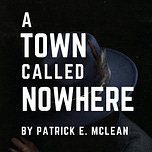

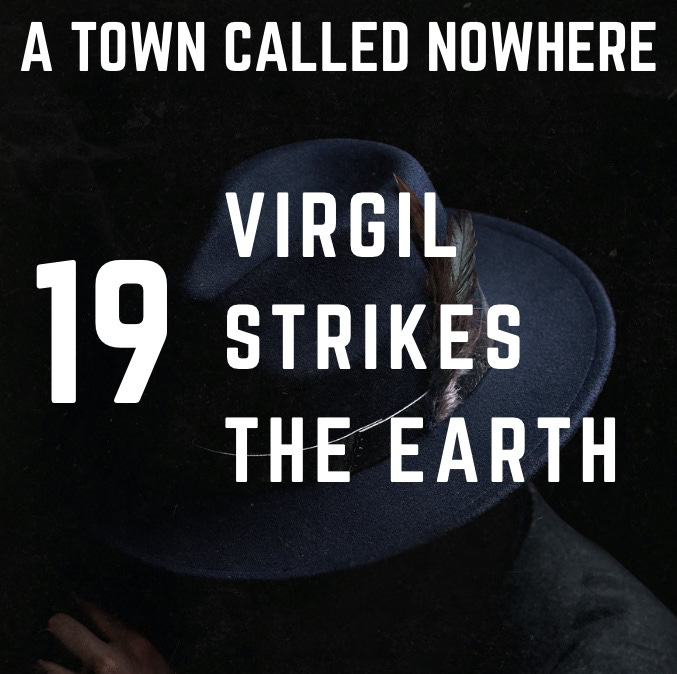

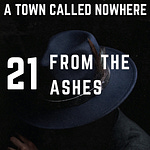
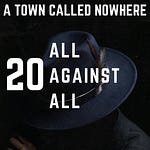


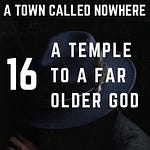

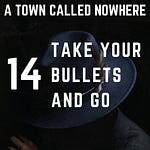
Share this post